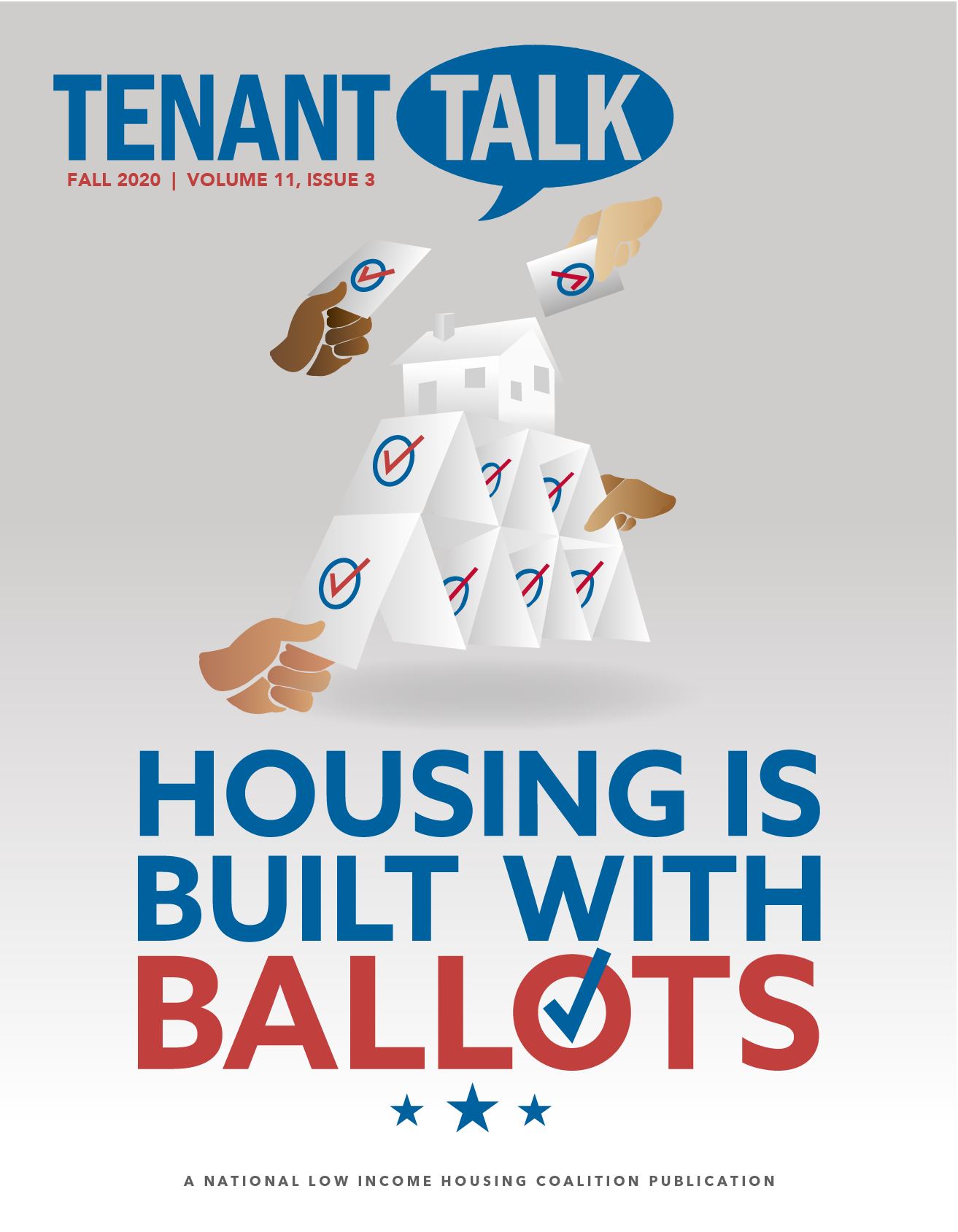Dear Readers,
It has been quite the summer. Our last issue in late spring focused on the COVID-19 pandemic and how it would affect low-income renters. Since then, the pandemic has raged around the world at varying levels but has been particularly devastating in the United States. At the time of this writing, the number of coronavirus cases in the United States is over 5 million and the death toll from the virus is nearly 200,000.
Further, according to Princeton’s Eviction Lab, there have been more than 40,000 evictions during the pandemic. The recent eviction moratorium from the Centers for Disease Control should keep renters stably housed, but only through December. At that point, all of their accumulated rent is still owed.
What is the path forward? Well, Congress passed the CARES Act in March which provided relief to millions in terms of unemployment insurance, an eviction moratorium on most federally subsidized properties, and funds that could be used for rental assistance by many state and local governments. Tragically, rental assistance programs are depleting quickly or funds are not being released. Congress and the White House were in serious discussions to pass another relief package but left for the August recess before they could get a deal done and left millions of people on financial life support. At the time this issue goes to print, there is no progress on the desperately needed relief legislation.
One of the many ways low-income renters can take action is by urging their members of Congress to pass a robust relief package. NLIHC research finds that 30-40 million renters are facing eviction when the moratorium ends, and there is a need for $100 billion in rent relief, a universal eviction moratorium, and $11.5 billion in homeless service provider assistance.
You know what? There is an election coming up! NLIHC worked hard during the Democratic primaries to make housing a key issue and during several debates, moderators asked questions regarding candidates’ housing plans. Several stated their plans to end homelessness and housing insecurity. NLIHC is committed to organizing low-income renters into a viable voting bloc not only in this presidential election but in all elections in years to come so that housing is consistently highlighted as a critical campaign issue.
Voting is just one of the tools low-income renters have to petition their government, but renters in the United States are massively underrepresented in the voting booth. State, local, and the federal government have privileged homeowners largely because their political participation outmatches renters. NLIHC understands that low-income renter political power is key to alleviating housing insecurity, so when renters win—we all win. When low-income renters become a political force to be reckoned with, governments have a duty to respond. Read on to see what NLIHC is doing to mobilize low-income renters to the ballot box and ways you can get involved!
Tenant Talk Editorial Board


